Lexus RZ450e review: Viva la electric revolución
Lexus and its parent company Toyota were well ahead of the game on hybrid engines, but have lagged a little with electric vehicles — until now with the release of the RZ450e. James Fisher took a drive.
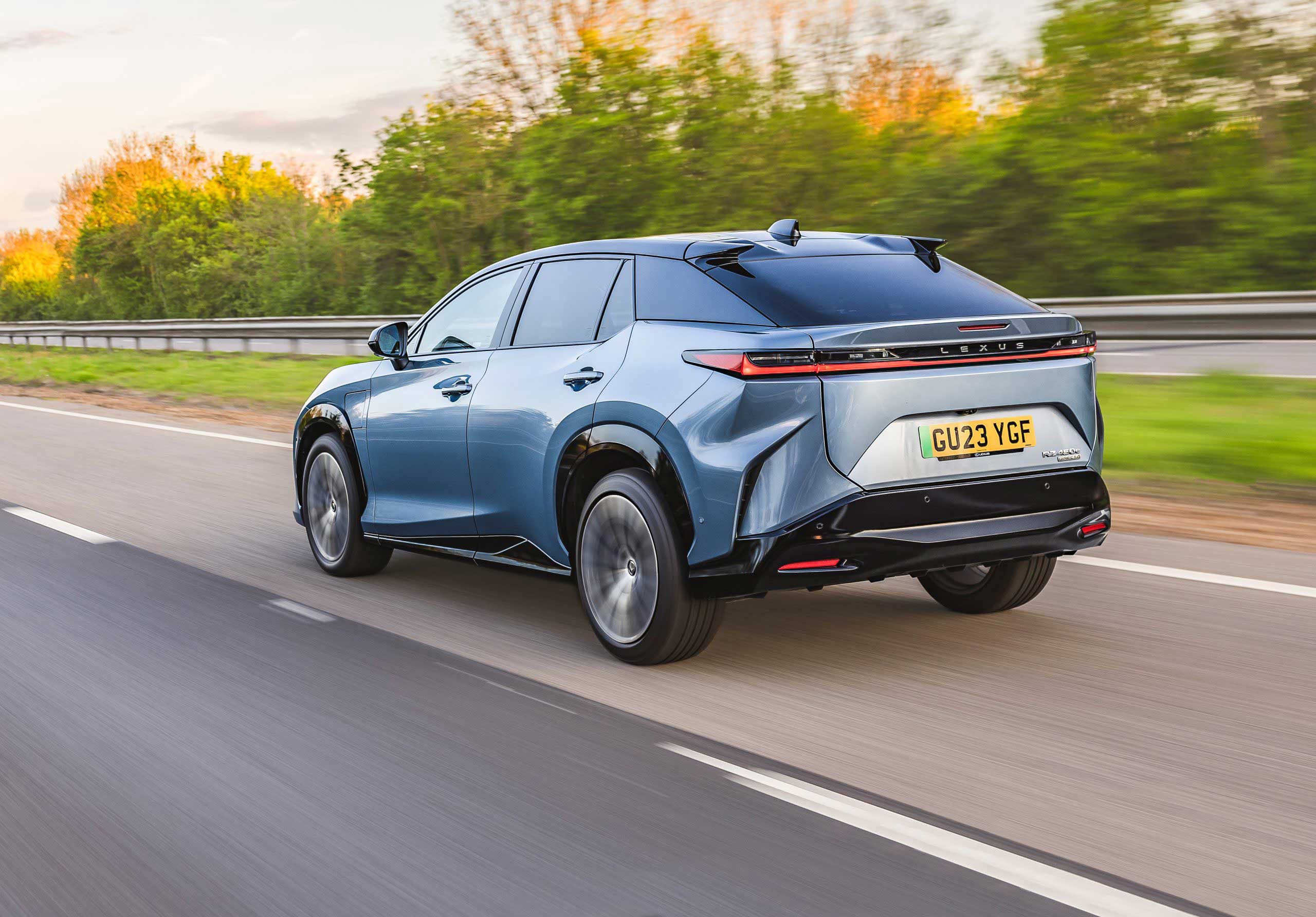

Such has been the changing pace of the car market in recent years, with regards to electrification, it almost seems strange to think that the first hybrid car was released quite so long ago. When the Toyota Prius first came on sale in Japan in 1997, it turned heads as the first ever mass-produced hybrid car. Not too long after that, Lexus, Toyota’s luxury division, decided to get in on the act, upgrading their RX model into those colossuses of the early noughties school run, the RX400h and RX450h.
The more than 15-year existence of the hybrid at Lexus should be seen as pioneering — it certainly didn’t seem fashionable at the time to make a hybrid, let alone urgent in the context of a warming planet. However, it makes it all the more strange that it’s then taken Lexus quite so long to create a car that was designed to be an all electric vehicle (EV) from the batteries up. But that car is now here, and it is the RZ450e.
Another thing that has been going on for a surprisingly long time, but has only got very popular relatively recently, is the Glastonbury Festival for Contemporary Performing Arts (to give it its full name). Much like Toyota and Lexus, it too could be considered ‘ahead of the curve’, drawing attention to, and raising funds for, the fight against a changing climate and pollution long before either of those things seemed particularly interesting or necessary. It seemed a fitting location to take the RZ — perhaps these two long established brands of climate justice could learn a thing or two from each other?
They also had something else in common: me. Or rather that before that weekend at the end of June, I had neither been to Glastonbury, nor had I ever driven an all electric car. It was a weekend of firsts and, certainly, lasts.
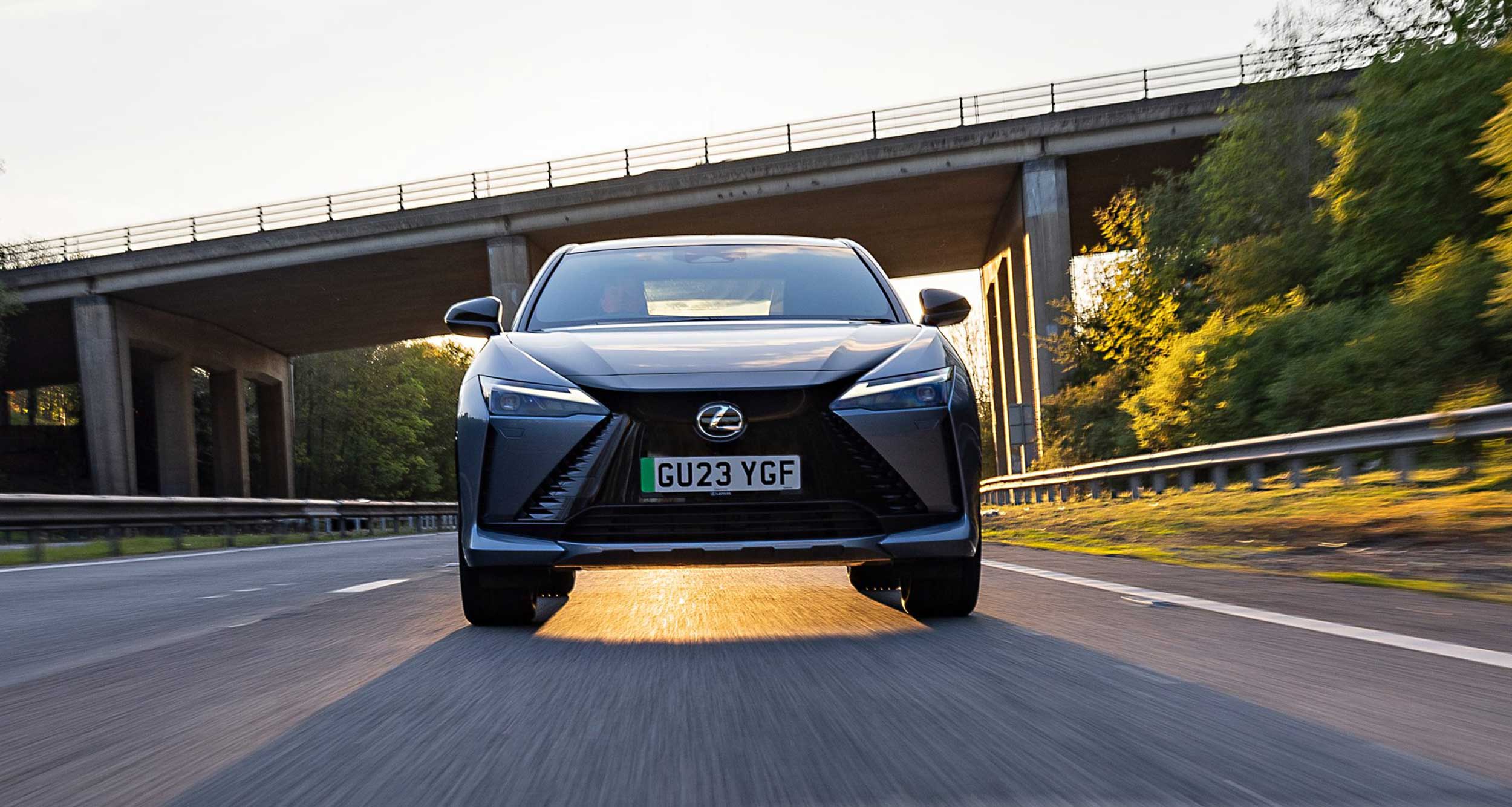
Before the music, we must begin with the motor. When I first saw the car on Tuesday, I was pleasantly surprised. A lot of modern cars seem designed to aggressively dazzle, to look more like the future than, well, just a car. The RZ (and the designers behind it) have retained some (but not all) of their composure, and have produced something that looks new, but is still perfectly recognisable for what it is: a method of getting from A to B. I particularly enjoyed the front end, which feels dynamic, especially as the engine bay doesn’t need to house a conventional combustion engine. As a result, not only does it look good, but the visibility is also excellent when driving, and you know exactly where the front of the car is.
Inside, things are very pleasant indeed. Again, everything looks a bit futuristic, but not ridiculously so, and the ‘infotainment’ system boasts one of the larger screens I’ve ever seen on wheels (discounting those big TVs on wheels that we used to love at school).
There’s lots of nice little details, different materials that all feel expensive and pleasant to touch, and the seats are easy enough to sink into. The ‘welcome’ the car gives you when you enter (called Omotenashi, say Lexus) is fun too.
Sign up for the Country Life Newsletter
Exquisite houses, the beauty of Nature, and how to get the most from your life, straight to your inbox.
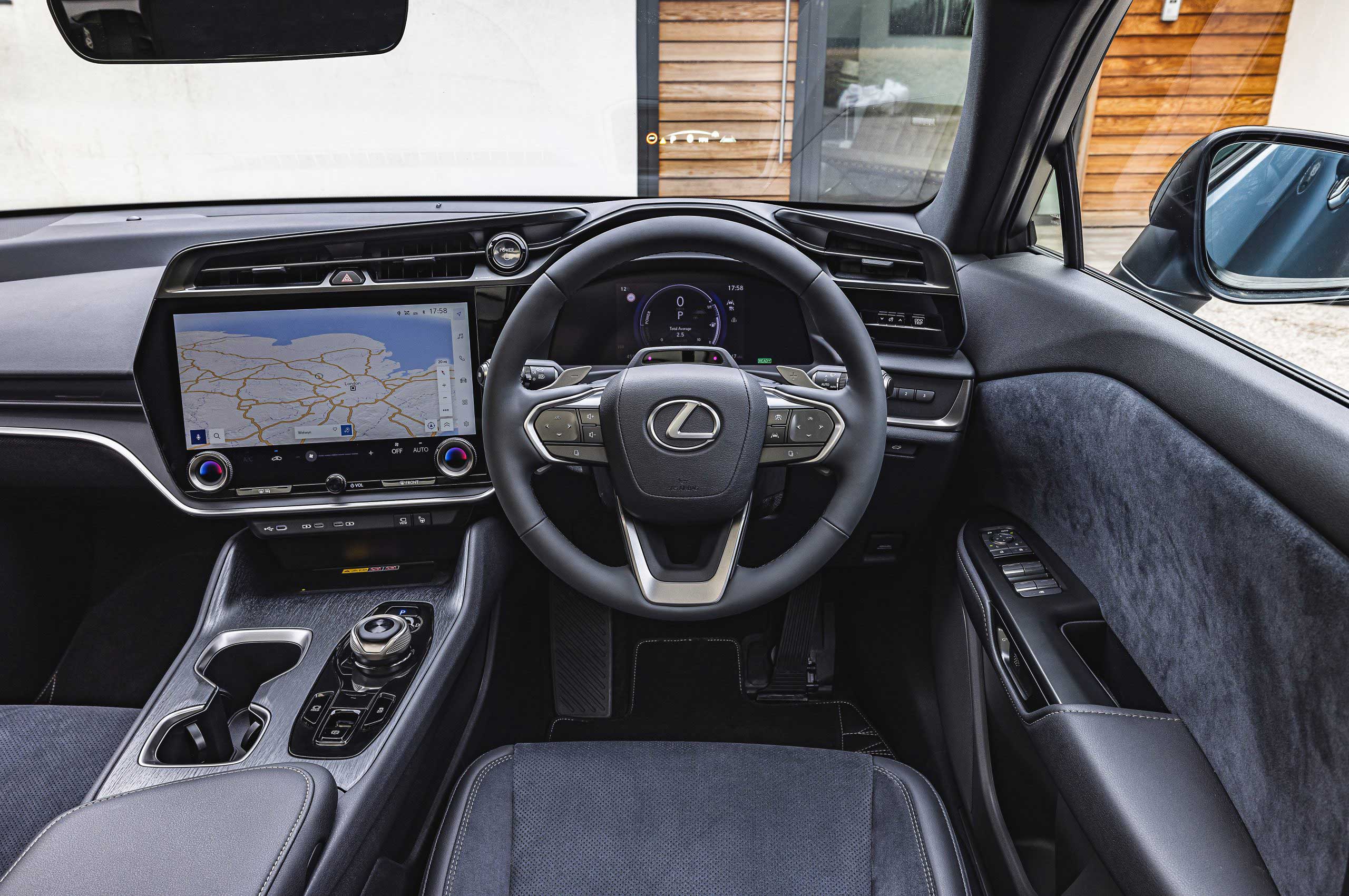
The size of the boot is pretty decent, and could definitely fit some golf clubs and a dog or too, and the back seats are pretty spacious. A panoramic glass window runs the length of the roof, and can be frosted and unfrosted by the push of a button, which makes you feel like you’re working as a top spook at MI6.
A promising start, which was unfortunately somewhat undone when it came to driving the car — at least temporarily. As you might have guessed, the car is something of a technical marvel, and as a result is furnished to the hilt with every driving aid you could possibly imagine, including one that even watches you, the driver. It can help you park, it can help you stay within the lines on the motorway, it will brake for you, it will even sometimes steer for you, whether you like it or not.
While this all comes from an undoubtedly good place (it’s nice that Lexus is trying to stop me, and others, from dying), there is a certain amount of autonomy that someone such as myself is used to when driving. If, for example, you are driving down a road in London, and you notice that a car is trying to merge from a side street, most of the time that car will wait until it is let in or there is a gap in the traffic to join the stream.
However, if that car were to accidentally twitch, or even nudge forwards, the RZ will slam on the brakes, or steer you away, as it anticipates an accident. If you are not used to this, it can be extremely frightening and leave you with a not-at-all pleasant sensation of not actually being in control. These safety features also have an irritating habit of pinging if you are driving a fraction too quickly, or accidentally touching a white line (of the type painted on the road, rather than those seen at Glastonbury) or gosh knows what else.
The problem is that the system doesn't actually tell you what these individual pings mean, so until you figure them out, you are unsure if the car is pinging because there is someone in your blind spot, or because the battery is on fire and the wheels have fallen off.
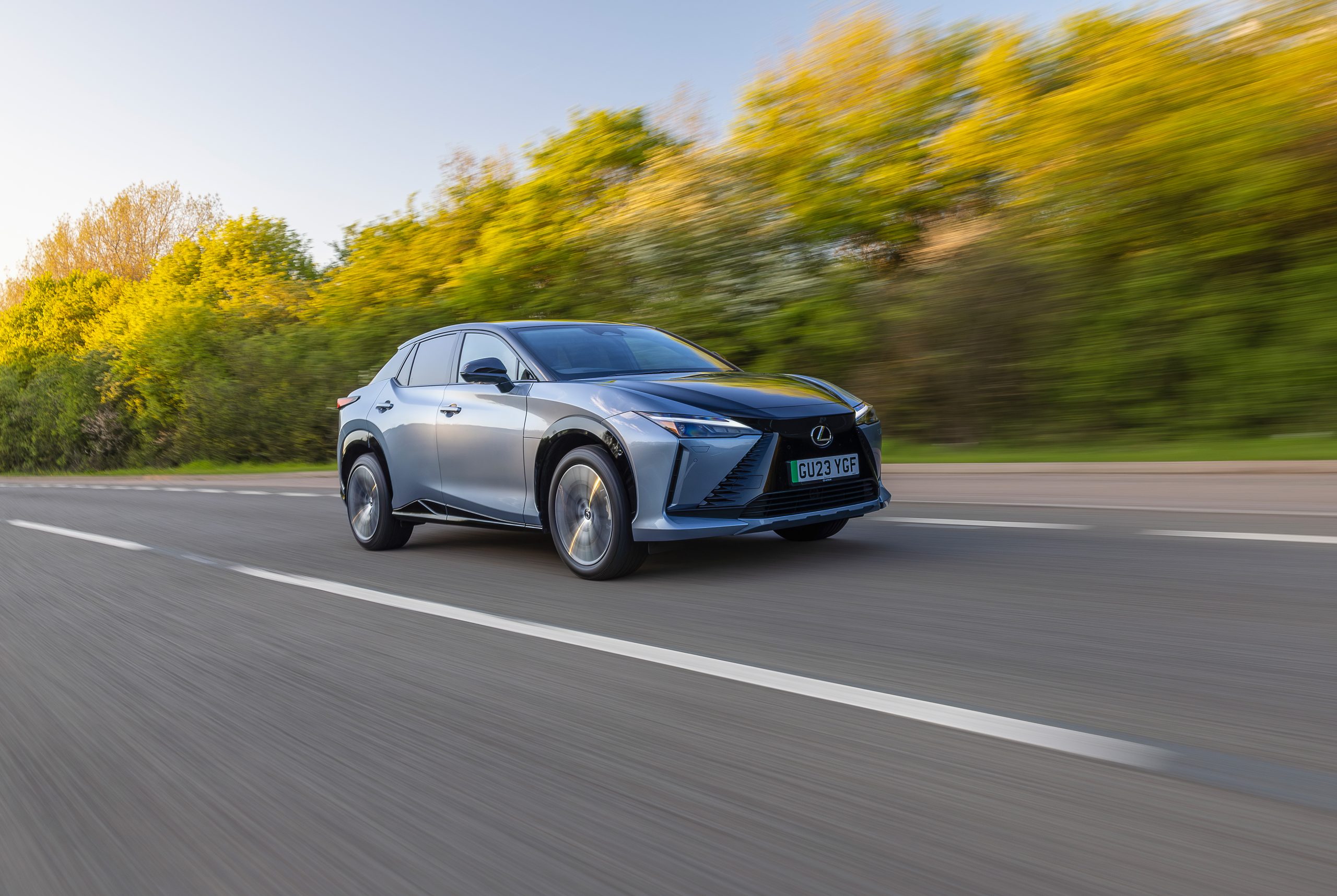
All of these systems can be turned off, thankfully, but this must be done every time you start up the car. I think the world has become a better place since we had to opt in to things, rather than constantly opt out of them. Perhaps Lexus (and others) should take note.
However, once the beeping has been contented with, gosh the RZ is a fun car to drive. I have always found myself to be something of an old man trapped inside a younger man’s body, and, while accepting the death of the internal combustion engine as a necessary evil, I’ve still found the concept of EVs to be somewhat underwhelming.
That was before I drove one.
The acceleration is like that of a decent sports car and, considering that Lexus have styled this car more on the concept of comfort rather than speed, is more than enough to keep the reluctant petrol-head more than interested. A low centre of gravity as a result of the batteries lining the chassis floor and some incredibly fancy suspension work means that it handles sharply too. The end result is a medium-sized SUV, with all the usefulness that provides, that is fun to drive. No longer is the choice between excitement and practicality (at a reasonable price, anyway). You can have both.

On the motorway, the car is smooth, quiet and eminently comfortable, eating up the miles so cleanly that a blast down the M4 to Bristol and beyond from London was a delight. Indeed, driving through London was a dream too, especially considering the snappy acceleration and response, which made darting in and out of traffic a breeze.
Realistically, the biggest challenge facing EVs, such as the RZ, will be: ‘how much will this be different to the thing I am already used to’. Arguably, this is also the biggest challenge facing society as a whole when it comes to climate change, but I digress. The good news is, that we are almost there. After five minutes of driving the RZ, you have forgotten that you are driving an EV. Almost 200 miles later, pulling into a service station and plugging in, you are told that it will be 20 minutes until the car is back up to 80% charge, but after a trip to the loo and a coffee, that is hardly any time at all — and, unlike a petrol engine, you can just leave it plugged in and wander off.
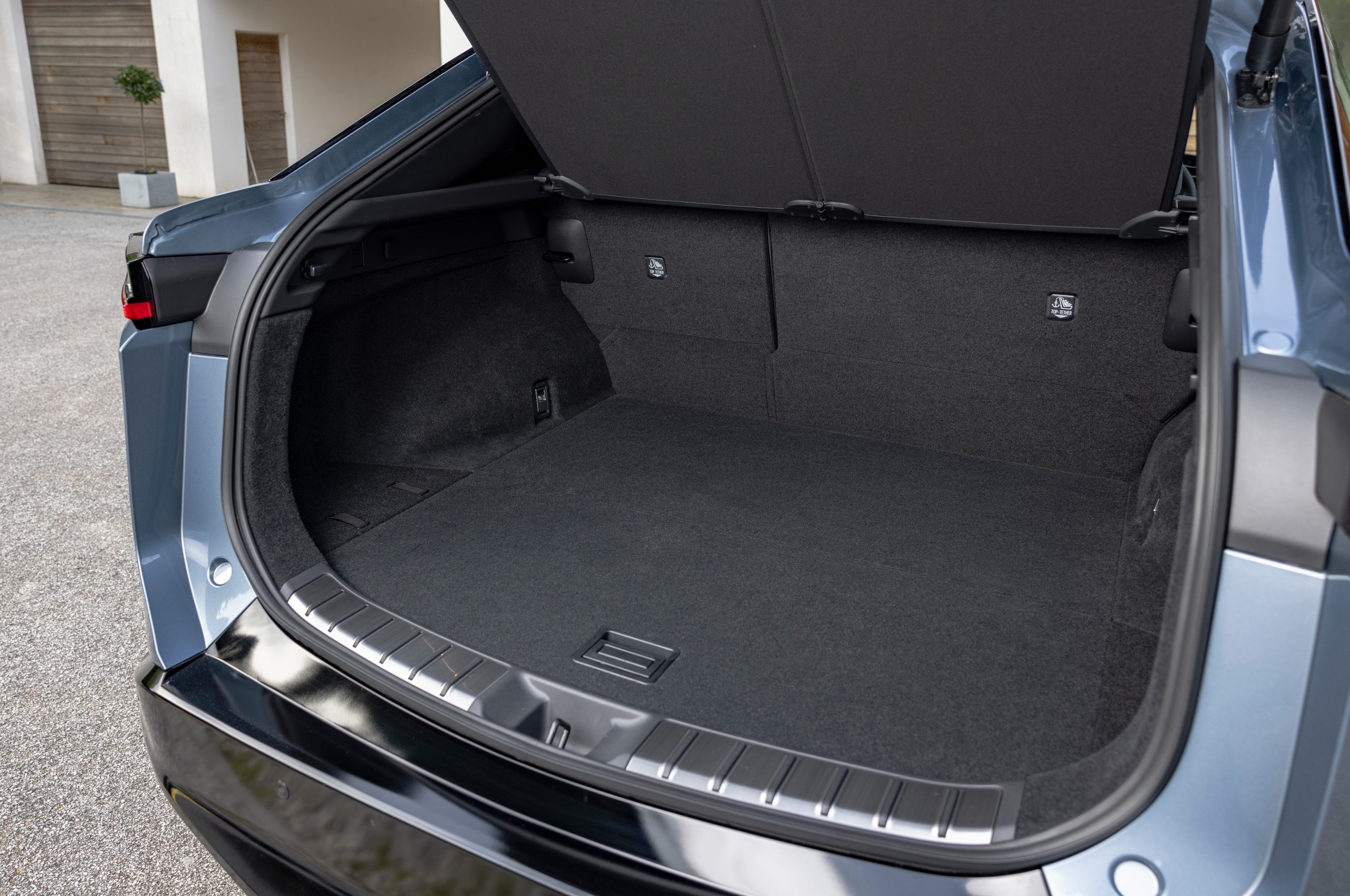
After five days in a field in Somerset, there was something of a small comfort in knowing that, as well as taking part in ‘net-zero’ festival, I would also be doing my part for the drive home. And, despite being parked in a field for four days without moving, and being subjected to some vicious summer sun, the battery charge had not depleted at all (nor were the tires slashed by SUV-hating hippies). When it came time to go home, I of course then got stuck in standstill traffic for the best part of five hours and, again, the RZ coped admirably, so much so that my passenger slept soundly for three hours — and then was of course very confused as to why we had moved precisely 1ft.
Yes, there are issues (the 230-odd mile range isn’t amazing and the safety features can be overbearing), but those will only improve over time. The fundamentals are there and, if you are thinking of dipping your toe in the EV market (which, from 2030, if you want a new car you will have to) then the RZ is a terrific place to start. Viva la electric revolución.
Lexus RZ: The details
Price: From £64,500
Range: Up to 271 miles (per the manufacturer), about 230 miles (as driven)
Charging time: About 25 minutes from 10 to 80%

James Fisher is the Deputy Digital Editor of Country Life. He writes about property, travel, motoring and things that upset him. He lives in London.
-
 Two quick and easy seasonal asparagus recipes to try this Easter Weekend
Two quick and easy seasonal asparagus recipes to try this Easter WeekendAsparagus has royal roots — it was once a favourite of Madame de Pompadour.
By Melanie Johnson
-
 Sip tea and laugh at your neighbours in this seaside Norfolk home with a watchtower
Sip tea and laugh at your neighbours in this seaside Norfolk home with a watchtowerOn Cliff Hill in Gorleston, one home is taller than all the others. It could be yours.
By James Fisher